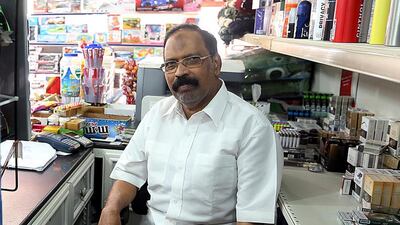ABU DHABI // The Emirate’s first modern hospital, the birthplace of many members of its Royal Family, will soon begin raising funds to further help residents who cannot afford medical care.
Last year, Oasis Hospital in Al Ain spent up to Dh2 million of its profits on medical bills and treatment for thousands of indigent residents.
The hospital, which was founded in 1960 by Christian missionaries and is the birthplace of Sheikh Mohammed bin Zayed, Crown Prince of Abu Dhabi and Deputy Supreme Commander of the Armed Forces, has stood firm by its Christian values and belief that everyone, regardless of wealth, nationality or religion, “deserves to be taken care of in the best way possible”, said its president, Trey Hulsey.
“Technically, everyone should have health insurance, but we all have different levels of health insurance and so what happens is that people who have low levels of insurance cannot afford treatment,” he said.
Such people are mostly unskilled workers, often from places such as India, Bangladesh and Pakistan, he said.
“Their insurance may not pay so much so, for example, they need medications that are worth Dh5,000 and their insurance would cover only Dh500 – or maybe they have kidney stones and their insurance covers only part of their bill.”
The hospital’s main concern in such situations, Mr Hulsey said, was how to treat the patient.
“So, while some private hospitals are trying to figure out how to make money from you; that is not our first concern. Our first concern is how can we treat you properly and make sure that you are well taken care of, not because we want to make money, but because we want to stay true to the roots of Oasis Hospital.”
The hospital, which is recognised for its obstetric and paediatric care, covers the outstanding bills of poor patients from profits it has generated.
“We don’t turn them [the needy] over to the police and we accept that they are not able to pay,” he said.
But with 15,000 patients a month at outpatient clinics, 3,000 births every year and 500 staff members, it is proving a challenge. “Demand is increasing and there is a greater need, especially now that we have moved to a larger building.”
Until recently, Mr Hulsey said, “We haven’t tried to raise money in the UAE but we will soon have to. We really want to take care of people in a good way and this is part of our faith-based organisation, where we believe that God loves us and we want to love other people because of Him,” he said.
“We try to help patients who cannot pay but it’s not a free service. We can’t do that financially,” said Bashar Al Khalaf, customer service manager.
“We never refuse a patient but we ask them to work with us to pay off their bill. They can pay us in instalments, but we cannot cover it 100 per cent,” he said.
Yet the hospital still pays a large percentage of the bill, sometimes as much as 80 per cent.
“We also refer the patient to the Red Crescent and other charity organisations, but we don’t take any legal action against patients if they still can’t pay,” Mr Khalaf said.
On patients who cannot afford the costs, he said: “Recently we have been receiving many Syrian patients – almost a patient a week. Some will have brought their wives on a visit visa or have lost their jobs so they have no health insurance, there are many different reasons.
“Not all have a valid visa, and legally we are not required to report them to the police. Our concern is how to treat them.”
One such patient was 65-year-old Abdel Hamid Mohamed, who had a stroke in August at his house in Al Ain. The shopowner from Kerala, south India, had no health insurance and could not afford to go to the hospital.
“I was at home with my wife and it was 1am [when he had the stroke]. She took me to Oasis Hospital even after I told her that no one will take me because I had no insurance and my visa had expired.”
The hospital, he said, never asked for any of his documents.
“They didn’t care. They took me to the emergency and they said I needed heart surgery.”
Mr Mohamed was sent by the hospital to Sheikh Khalifa Medical City for surgery. He had four blocked arteries and required urgent attention.
“They never asked me for any money. I stayed for three days in Abu Dhabi for [the] operation and many, many doctors saw me, but no one asked for money.”
salnuwais@thenational.ae

